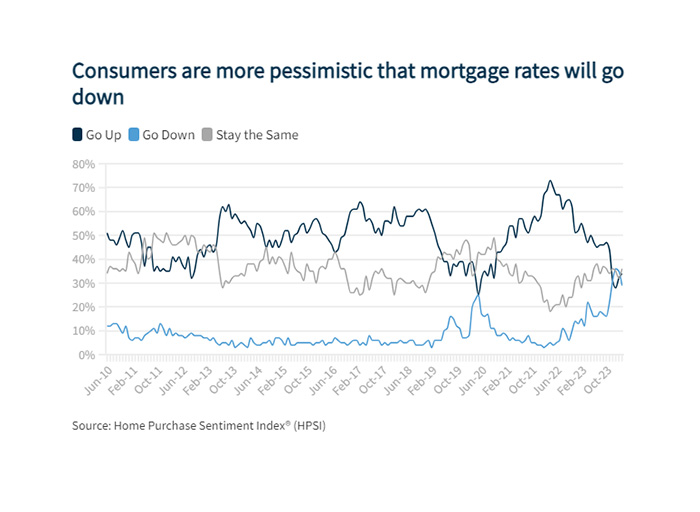
Fannie Mae: March Home Purchase Sentiment Index Falls Slightly

(Image courtesy of Fannie Mae; Breakout image courtesy of Tuesday Temptation/pexels.com)
Fannie Mae’s Home Purchase Sentiment Index decreased 0.9 point in March to 71.9, the first drop since November. However, perceptions of homebuying and selling conditions increased a bit.
One big factor weighing on sentiment: 34% of consumers believe mortgage rates will go up over the next year, up from 32% in February. Only 29% believe rates will decline.
But, the full index is up 10.6 points year-over-year after rough conditions in 2023.
Currently, 21% believe it’s a “good time” to buy a home.
Sixty-six percent say it’s a “good time” to sell a home.
In terms of household factors, 77% say they’re not concerned about losing their job over the next year. Nineteen percent say their household income is significantly higher; only 12% say it’s significantly lower.
“The HPSI remained relatively flat in March, but we’re seeing signs that consumers may be adjusting their expectations for the housing market to better accommodate the higher mortgage rate and home price environment,” said Doug Duncan, Fannie Mae Senior Vice President and Chief Economist. “Both our ‘good time to buy’ and ‘good time to sell’ measures continued their slow upward drift this month. However, consumers took a slightly more pessimistic view on the likely direction of mortgage rates, likely reflecting the fact that actual mortgage rates have moved upward since the start of the year.”
“With the historically low rates of the pandemic era now firmly behind us, some households appear to be moving past the hurdle of last year’s sharp jump in rates, an adjustment that we think could help further thaw the housing market,” Duncan also said. “We noted in our latest monthly forecast that we expect to see a gradual increase in home listings and sales transactions in the coming year. We believe this will be driven not only by those coming off the sidelines due to a rate-related recalibration, but also by households who may need to move for other life reasons.”
